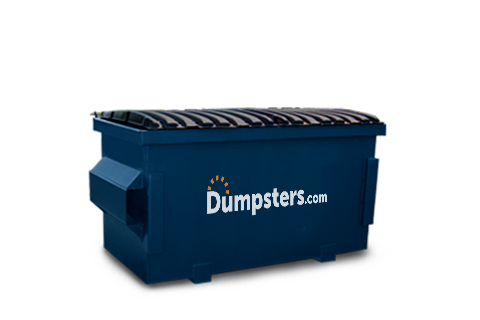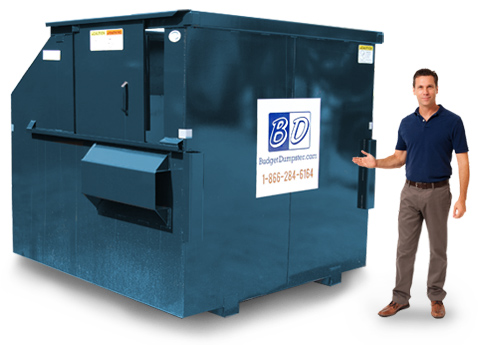Renting a dumpster can be a challenging task, however by complying with these top 10 pointers and tricks, you can guarantee a seamless and effective process. Beginning by choosing the right dumpster size and type for your task, and accurately calculate your debris volume to prevent excess or bothersome mid-project swaps. Recognize weight limits, comprehend pickup and distribution fees, and prepare the drop-off area to lessen dangers. Tons the dumpster efficiently, avoid prohibited waste items, and review contracts meticulously to comprehend consisted of solutions and tenant obligations. By following these necessary suggestions, you'll be well on your way to a hassle-free dumpster rental experience - and there's a lot more to discover.
Know Your Dumpster Dimension Options
When taking on a project that includes substantial waste disposal, picking the ideal dumpster size is important to guaranteeing efficient and cost-effective waste management.
A dumpster that is too little can result in boosted costs and inconvenience, while one that is as well huge can result in thrown away room and sources. Fortunately, dumpster rental firms use a series of dimensions to accommodate various project needs.
Typical dumpster sizes vary from 10 to 40 cubic lawns, with one of the most usual sizes being 20 and 30 cubic lawns. The 10-yard dumpster is perfect for small projects, such as shower room remodels or small renovations, while the 40-yard dumpster is better fit for large building and construction projects or business cleanups.
Consider the kind and amount of waste you anticipate to produce, along with the readily available space on your site, when picking a dumpster dimension. By choosing the best size dumpster, you can assure a smooth and efficient waste administration process that meets your task's unique needs.
Plan Ahead for Delivery
Frequently, project timelines are derailed by logistical oversights, and dumpster delivery is no exemption. To prevent unnecessary hold-ups, it's essential to intend ahead for your dumpster arrival. Confirm the shipment date and time with your rental carrier to ensure you're prepared to receive the dumpster.
Clear the delivery location of any kind of obstructions, such as parked vehicles or looming branches, to offer very easy access for the delivery van. If you're renting out a dumpster for a residential task, notify your neighbors of the upcoming distribution to reduce any type of possible disruptions.
Additionally, assign a details area for the dumpster, thinking about any kind of local regulations or property owners' association regulations. Verify the dumpster dimension and type with your rental company to make certain it fits in the designated area.
Calculate Your Debris Volume
Accurately estimating the quantity of debris your job will certainly produce is necessary to selecting the best dumpster size and staying clear of pricey excess or bothersome mid-project swaps.
To calculate your debris volume, think about the list below variables:
Weight and density: Various products have differing weights and thickness, affecting the general volume of particles. For example, hefty materials like concrete or asphalt occupy less area than lighter materials like drywall or roof shingles.
Debris kind and size: Break down particles into categories, such as building and construction products, backyard waste, or home items. Price quote the quantity of each classification based on the size and amount of items.
Container constraints: Think about the dumpster's measurements, including size, size, and elevation. Guarantee you have enough space for the estimated debris volume, leaving some space for simple loading and unloading.
Project extent and timeline: Change your estimate based upon the job's extent and timeline. Bigger tasks or those with multiple stages may call for more debris removal capacity.
Choose the Right Dumpster Type
Selecting the right dumpster type is a vital action in ensuring a smooth waste administration process, as it directly influences the effectiveness and cost-effectiveness of your task. With various dumpster types available, it's vital to choose the one that best fits your particular needs.

Roll-off dumpsters, as an example, are suitable for large-scale projects, such https://fat-robin.unicornplatform.page/blog/dumpster-rental-for-building-and-construction-projects-in-5-actions/ as building or demolition, where a significant amount of waste requires to be disposed of. These dumpsters are available in various dimensions, varying from 10 to 40 backyards, and are furnished with wheels, making them simple to navigate around the site.
On the various other hand, compactors are excellent for smaller projects, like household improvements or local business waste monitoring. They are created to press waste, lowering the number of trips required for disposal.
Additionally, some dumpster rental business supply specialized dumpsters for particular materials, such as concrete, asphalt, or backyard waste. By picking the right dumpster kind, you can assure a more reliable and cost-effective waste management process.
Be Familiar with Weight Limits
When choosing the appropriate dumpster kind, it's equally important to be conscious of the weight limits related to each dumpster dimension. Straining a dumpster can bring about added charges, security dangers, and even damages to the dumpster itself. To stay clear of these problems, it's vital to comprehend the weight limits of your selected dumpster.
Here are some crucial considerations to bear in mind:
Know the weight limit: Verify the weight limitation of your dumpster rental with your provider to ensure you stay within the allowed range.
Estimate debris weight: Properly estimate the weight of the debris you intend to dispose of to pick the suitable dumpster size.
Avoid overloading: Do not overload the dumpster, as this can result in additional costs, security threats, and damage to the dumpster.
Ask concerning weight-based pricing: Some dumpster rental companies charge based on the weight of the particles, so be sure to inquire about their prices structure.
Understand Pick-up and Delivery Fees
Additional expenses can prowl in the small print of your dumpster rental agreement, and one frequently neglected facet is the fees associated with pickup and delivery
These charges can accumulate quickly, so it's essential to comprehend what you're paying for. Generally, dumpster rental firms bill separate costs for shipment, pick-up, and often also fuel additional charges. Make certain to inquire about these charges upfront to prevent surprise charges on your final bill.
Some companies may offer a flat rate for delivery and pickup, while others might charge by the mile or by the load. Knowing the specifics of your contract will certainly assist you intend your budget plan accordingly.
It's also crucial to clarify what is included in the shipment and pick-up fees, such as whether the chauffeur will assist with positioning or elimination of the dumpster. By recognizing these fees, you can prevent unexpected costs and assure a smooth rental experience.
Prepare the Drop-Off Location
To guarantee a seamless dumpster rental experience, it's essential to prepare the drop-off location before the dumpster arrives. A well-prepared site guarantees the dumpster can be placed securely and effectively, decreasing the danger of damage or delays.
Before the dumpster gets here, make certain to:
Clear the area: Remove any challenges, including automobiles, furnishings, or particles, to give a clear course for the dumpster.
Mark the location: Clearly note the drop-off area with cones or tape to lead the delivery driver.
Check for overhead clearance: Verify there are no low-hanging branches, wires, or other blockages that can interfere with the dumpster's placement.
Designate a contact person: Identify a person to be present during delivery and pick-up to resolve any inquiries or concerns.
Load the Dumpster Efficiently
Properly packing the dumpster is necessary to maximize its capacity, decrease the threat of damages, and assure a smooth rental experience. To achieve this, it's vital to prepare in advance and arrange your waste disposal strategy.
Start by putting the heaviest items, such as construction materials or devices, at the end of the dumpster. This will give a stable base and protect against lighter products from obtaining crushed.
Next, fill in the voids with smaller sized things like boxes, furniture, and loose particles. Ensure to distribute the weight evenly and avoid overloading one side of the dumpster.
Leave some space at the top for easy loading and unloading, and think about using tarpaulins or ropes to secure loose items during transportation.
Avoid Prohibited Waste Items
Some typical banned products consist of:
Hazardous materials: batteries, electronics, chemicals, and fluorescent light bulbs
Toxic substances: asbestos, chemicals, and contaminated materials
Flammable liquids: fuel, oil, and paint thinner
Large appliances: refrigerators, ac system, and freezers

Failure to follow these regulations can result in significant repercussions, including ecological harm and legal issues.
Always talk to your dumpster rental supplier for particular standards on restricted waste items to ensure a smooth and effective garbage disposal experience.
Review and Understand Contracts
It's also important to examine the scope of work, including what services are consisted of and what obligations fall on you as the renter.
Understand the process for resolving disputes and the treatment for terminating the agreement if needed.
Don't think twice to ask concerns or request explanation on any kind of vague provisions.
By making the effort to examine and recognize the contract, you can ensure a smooth and hassle-free dumpster rental experience.